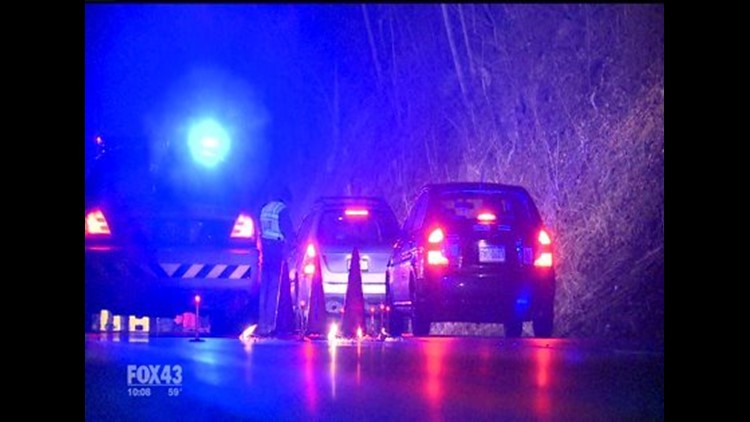Sobriety checkpoints and roving DUI patrols will be conducted in Adams, Lancaster, and York Counties over the Labor Day Holiday Weekend as part of the national “Drive Sober or Get Pulled Over” Labor Day Impaired Driving Crackdown which began August 17 and continues through Monday, September 5th.
This weekend’s sobriety checkpoints and roving DUI patrols will be held sometime between 6 p.m. on Friday and 6 p.m. on Sunday.
Sobriety checkpoints, roving DUI patrols, and other enforcement activities organized as part of this program are funded with federal grant money provided by the Pennsylvania Department of Transportation, and established on sections of roadway which have proven to be high incidence for impaired drivers both in terms of crashes and arrests.
Sobriety checkpoints are announced in advance, but roving DUI patrols and other related enforcement activities may or may not be announced in advance. Law enforcement agencies will be conducting enhanced DUI enforcement activity throughout the nation and Commonwealth during the Labor Day crackdown.
In 2015, there were 10,558 alcohol related crashes in Pennsylvania, resulting in 345 deaths. Forty-three of those deaths were passengers in a vehicle where the driver was impaired. On average each day, 29 alcohol-related crashes occurred. While PennDOT data shows that alcohol-related crashes are trending downward over the past decade, drug-related crashes are increasing each year.
Pennsylvania’s focus for this mobilization is DUI-drug impairment. Pennsylvania started recognizing DUI crashes were not exclusive to alcohol consumption approximately ten years ago when the Commonwealth joined a handful of other states that started training Drug Recognition Experts, or DREs, to combat the growing problem of drugged drivers.
The Drug Recognition Classification Program was developed by the National Highway Traffic Safety Administration and approved by the International Police Chiefs Association. Currently, there are nearly 150 trained Drug Recognition Experts in Pennsylvania, including state and municipal law enforcement officers. The Commonwealth’s specially-trained drug recognition officers will be assisting in the mobilization to identify and arrest the drug impaired driver.
In addition to extensive training for DREs, the Pennsylvania DUI Association and partners train officers in A.R.I.D.E. (Advanced Roadside Impaired Driving Enforcement), two-day course to identify signs of drugs versus alcohol when a driver is suspected of being impaired. Accordingly, of all DUI arrests, DUI-Drug arrests continue to climb, now accounting for nearly 50 percent of all those impaired driving arrests; 25% are strictly drug related, while the other 25% are drug impairment combined with alcohol.
Of course, motor vehicle crashes and fatalities involving DUI and DUI-D are entirely preventable.
“Research shows that high-visibility enforcement can reduce impaired driving fatalities by as much as 20 percent,” said Barbara Zortman, director of the Center for Traffic Safety, “The point of announcing enforcement activities in advance is to change the minds of anyone who might normally get behind the wheel impaired and won’t now because of the heightened risk of getting caught, or maybe they’ll designate a sober driver or call a cab. Ultimately, the goal is to keep the impaired driver from driving, and to catch those that do and get them off the road before a tragedy occurs.”
Drive sober, or get pulled over.



